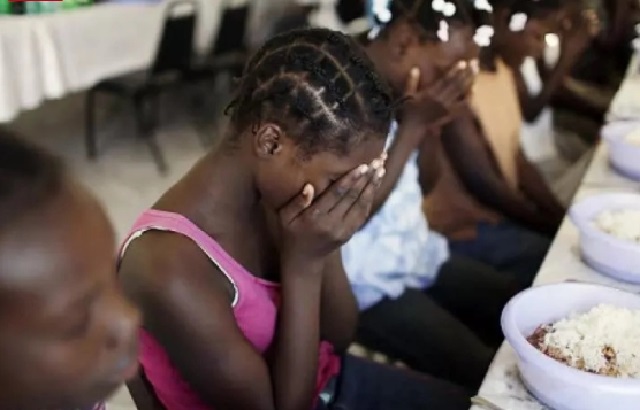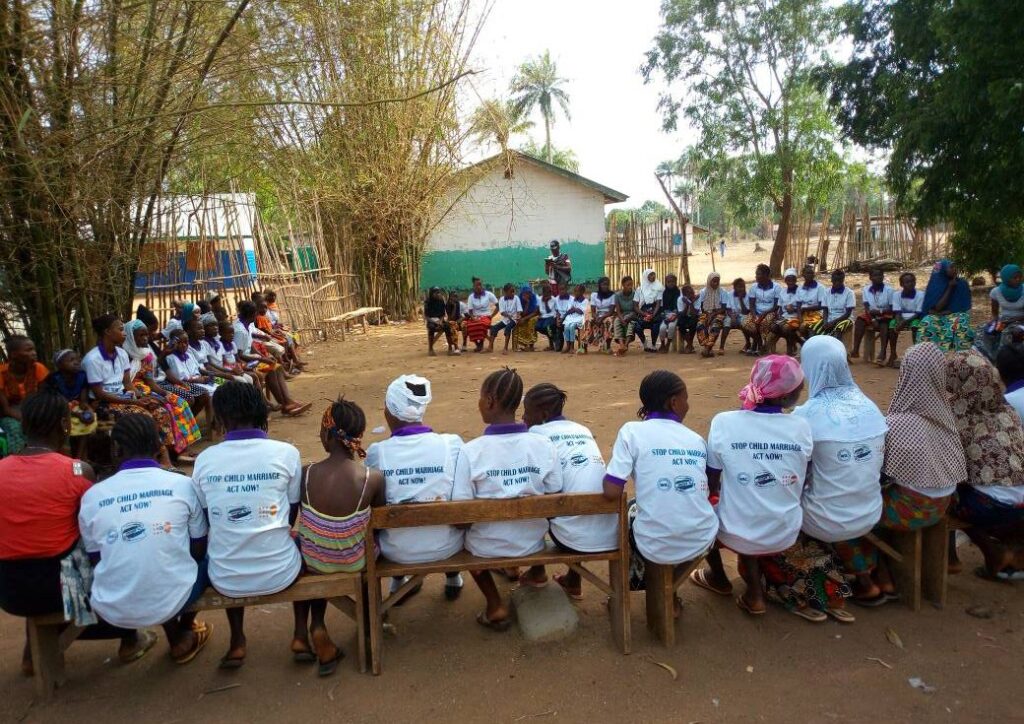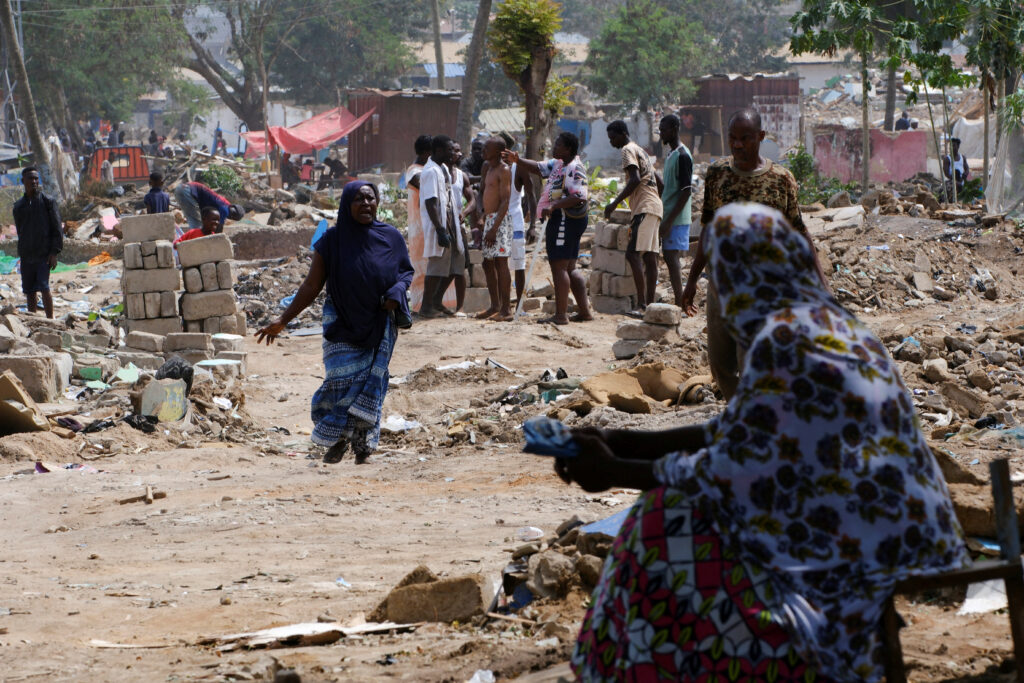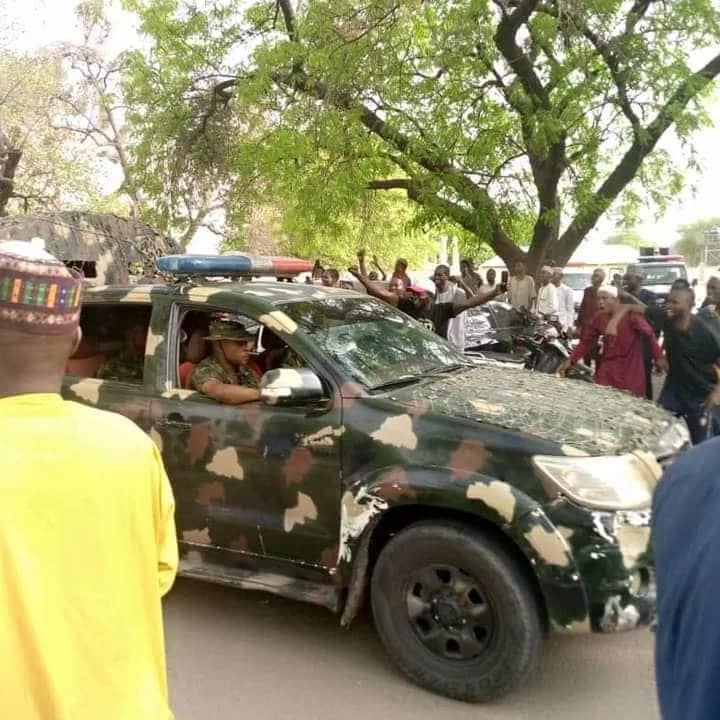The spectre of human trafficking casts a long shadow across West Africa, posing significant socio-economic and humanitarian challenges. This illicit trade has been a persistent issue in Nigeria, where the combined scourges of poverty and corruption create an environment conducive to criminal enterprises. Recently, a particularly stark example of this pervasive issue has emerged, highlighting a trafficking route from Nigeria to Ghana. In a video that went viral on social media, it was alleged that young Nigerian girls, aged between 15 and 18, had allegedly been taken to Ghana for prostitution. This alarming incident underscores the urgent need for enhanced measures to combat human trafficking and protect vulnerable populations in the region.
According to the United Nations Office on Drugs and Crime (UNODC), children represent 75 per cent of trafficking victims detected in West Africa. The modus operandi of traffickers often hinges on preying on vulnerability. In the Nigerian case, vulnerable young girls were enticed with the prospect of legitimate work, only to be forced into prostitution upon arrival in Ghana. This is a chilling echo of countless stories across the region. The clandestine nature of this trade makes it difficult to quantify, but estimates suggest thousands are affected annually. Reports highlight the increasing visibility of Nigerian minors in the sex trade. Local Non-Governmental Organisations and media outlets have documented cases of girls as young as 13 being discovered in brothels and street corners, their dreams of a better future shattered by the cruel hand of traffickers.
Nigerian and Ghanaian authorities have stepped up their efforts in response to this crisis. Nigeria’s National Agency for the Prohibition of Trafficking in Persons (NAPTIP), an agency founded in 2003 to combat human trafficking and other similar human rights violations, has intensified its operations, focusing on dismantling trafficking networks and prosecuting offenders. In the past year, NAPTIP has reported a series of arrests and convictions, securing a conviction of 29 human traffickers from January 2024 to date, signalling a commitment to tackling the problem at its roots. Ghana, on its part, has enhanced border surveillance and strengthened its collaboration with Nigerian law enforcement. Joint operations have led to the rescue of several trafficking victims and the apprehension of key traffickers. The recent rescue highlights cooperation between NAPTIP, the Nigerian High Commission in Ghana, and the Nigerians in Diaspora Commission. This collaborative approach offers a blueprint for future success. However, the complex and transnational nature of human trafficking necessitates more than just national efforts.
The Economic Community of West African States (ECOWAS) has fostered regional cooperation. By facilitating information sharing and coordinated action among member states, ECOWAS aims to create a hostile environment for traffickers. International bodies such as the International Organisation for Migration (IOM) and the United Nations Office on Drugs and Crime (UNODC) have also provided technical support for anti-trafficking initiatives. Despite these efforts, significant challenges remain. Cross-border corruption within law enforcement and judicial systems often hampers the prosecution of traffickers. Additionally, the stigma attached to trafficking victims discourages many from coming forward, complicating rescue and rehabilitation efforts.
Addressing the root causes of trafficking is imperative for any long-term solution. This means tackling the socio-economic vulnerabilities that traffickers exploit. This involves expanding access to education, improving economic opportunities, and strengthening Nigeria’s social safety nets. Empowering the youth through education and vocational training can reduce their susceptibility to traffickers’ false promises. Public awareness campaigns are also vital. By educating communities about the dangers of trafficking and the deceptive tactics used by traffickers, governments can help prevent the recruitment of victims. Such campaigns must be culturally sensitive and far-reaching, utilising both traditional media and modern digital platforms. Internationally, pressure must continue to be applied to ensure that anti-trafficking measures are a priority on the global agenda. More robust international legal frameworks and enforcement mechanisms can help hold traffickers accountable, regardless of borders. Furthermore, cross-border cooperation and information sharing between countries are essential in dismantling trafficking networks and prosecuting perpetrators. Strengthening border controls and enhancing collaboration between law enforcement agencies can disrupt the flow of trafficked individuals and hold perpetrators accountable for their crimes.
The fight against human trafficking is arduous and fraught with challenges, yet it must be waged relentlessly. The plight of trafficked Nigerians is a poignant reminder of the human cost of this crime. Education and awareness-raising initiatives play a crucial role in empowering individuals and communities to recognise the signs of trafficking and resist the false promises of traffickers. Additionally, economic empowerment programs that provide viable alternatives to vulnerable populations can help mitigate the risk of exploitation. Governments, CSOs, and international bodies must continue collaborating, innovating, and persevering to protect the vulnerable and dismantle exploitation networks. Only through sustained and concerted action can the dreams of these young girls be rescued from the shadows and brought into the light of a safer, more just world.



